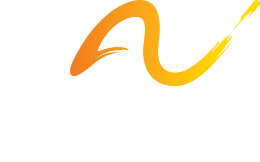The most significant law pertaining to education for students with disabilities is the Individuals with Disabilities Education Act (IDEA) which requires a free appropriate public education (FAPE), appropriate evaluation, an individualized education plan, least restrictive environment, parent participation, and procedural safeguards.
Students and children with intellectual and other developmental disabilities must be educated with appropriate supports and services in the least restrictive environment with free and appropriate services, which address their individual needs. However, these educational institutions have historically and inequitably been underfunded, which has caused teachers to be underpaid for their contributions and making it difficult to retain these valuable and critical educators.
Education is a life-long process for people with intellectual and other developmental disabilities (I/DD). Educational systems and programs must value all students and their families and include them in all aspects of education. Students with I/DD face significant additional challenges including baseline study skills, ability to self-advocate, and inadequate academic preparation due to lacking financial support for teachers and specialized educational institutions. The following guiding principles will significantly and positively enhance the education of individuals with intellectual and other developmental disabilities as well as all other individuals.
It is The Arc New York’s position that:
- The legal rights of students with intellectual and other developmental disabilities are protected and enhanced when educational systems comply fully with the spirit and intent of the IDEA and State Education Department regulations;
- Students with intellectual and other developmental disabilities must be educated with appropriate supports and services in the least restrictive environment;
- State and federal governments must conduct effective monitoring of IDEA. Technical assistance and, when necessary, sanctions are used by federal and state governments to ensure compliance by state and local education agencies;
- Appropriate resources must be made available so that with proper supports students with intellectual and other developmental disabilities have the opportunity to be educated in the most person-centered way;
- Parents and families must be supported as essential partners in the education and transition to adult life of their children;
- School districts, parents, and families should work together to ensure that we are holding all children with disabilities to high standards and providing access to challenging academic content and achievement standards;
- Restraints, seclusion and isolation are not acceptable substitutes for positive behavioral supports for students who experience challenging behaviors, partnerships with Behavioral Health support should instead be advocated for the student;
- Ensure safe school environments, which provide mental health supports and protection against bullying;
- Assure that school personnel provide timely explanations that are understandable and use functional descriptive language for special education and related services being proposed for the student;
- Children with intellectual and other developmental disabilities (including Early Intervention 0-3, Preschool 3-5) must be provided, from birth, with free and appropriate services, which address their individual needs in natural and least restrictive environments;
- The efficacy of preschool intervention to enhance the lives of children with disabilities has been repeatedly confirmed by studies. Preschools are facing a deteriorating situation, threatening preschool closings and systemic collapse. Despite rising costs, preschools have not received funding growth that meets the current need and pays teachers an equal wage with public schools;
- Special education 853/4410 schools need predictable and consistent growth factors, tuition rate increases, and other fiscal supportto bring reimbursement in line with the cost of operations;
- The federal government, New York state and county governments must provide adequate and sustainable funding so that New York’s most at-risk children are provided a chance for a life of independence and fulfilment;
- Individuals with intellectual and other developmental disabilities and their families must have access to advocacy support and services. Families must receive training and guidance from local, regional and statewide advocacy networks to become effective advocates for children within the educational system;
- Schools and providers must give parents of children in transition (from early intervention to preschool to school age to post-secondary) information and the necessary supports to ensure a timely, seamless transition;
- There is a significant shortage of certified special education teachers and related personnel such as physical therapists, speech and language therapists, Occupational therapists, classroom aides and assistants. Special education programs must be fully funded by the federal government and New York state to correct these shortages;
- Students with intellectual and other developmental disabilities and their parents or guardians must be part of the ongoing decision-making process regarding educational placement and programming;
- The Arc New York Chapters must form strong partnerships with local school systems and other governmental agencies to provide an appropriate person-centered transition to the next phase of life for students who are graduating from special education programs;
- The general education curriculum must include age-appropriate history, understanding, acceptance and contributions of people with disabilities throughout the K-12 grades;
- People with intellectual and other developmental disabilities have a right to lifelong learning including academic and personal enrichment classes
- As adults, people should be encouraged to pursue educational and vocational opportunities including, but not limited to:
- post-secondary programs;
- non-credit and for-credit courses online;
- fully integrated competitive or other employment;
- Individuals who choose these educational options have a right to appropriate supports





